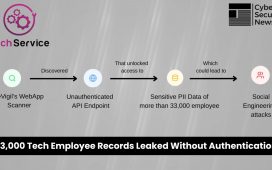Although only halfway through, the third decade of the 21st century has already seen an unprecedented level of threats to both national and international security. Military conflicts have multiplied exponentially across the globe, with multi-front wars dragging on for years and large-scale terrorist attacks continuing to shock the global community. These events have claimed countless innocent lives, disrupted state systems and economies, and undermined worldwide efforts to promote sustainable development.
Experts highlight the particularly aggravating factor of advanced technologies being employed in warfare and terrorism. These range from high-tech drones capable of targeting residential areas, hospitals, and government buildings undetected until it is too late, to precision-guided missiles. To counter such threats and protect society, staying one step ahead of aggressors in technological advancements is critically important.
Today’s defense sector urgently requires next-generation technologies designed for the immediate detection, analysis, and alerting of any approaching threats to enable military and emergency services to respond instantly, preventing damage or at least mitigating its impact. However, the challenge lies in the nature of government sector, which has historically dominated the tech defense industry but now struggles to meet current demands.
The highly bureaucratic process of developing, testing, approving, and implementing military-related technologies in the public sector has left governments unable to keep pace with the rapidly growing demand for tech defense innovations. Each stage of the process is burdened by extensive back-and-forth routines, from determining whether a particular technology is essential enough to warrant state funding to approving its launch on the market.
Moreover, political changes, such as a shift in regime or the election of a new president, often trigger additional waves of paperwork, inspections, and multi-level approvals. As a result, it can take several years to make urgently needed technologies available. Fortunately for the defense industry, the struggles of the public sector to supply demanded solutions on time have become a strong motivation for private investors and entrepreneurs to step in, developing innovative defense technologies through the private sector. This approach significantly accelerates the process, enabling the timely delivery of much-needed solutions.
The private tech defense sector spans a wide range of areas, including combat equipment and systems, unmanned systems, security and surveillance integration, simulation and training, defense electronics, as well as aircraft and avionics. These solutions are developed by individual entrepreneurs and private companies, enabling governments to quickly identify and adapt to emerging military and terrorist threats, detecting hostile drones, guided bombs, and missiles, and thereby protecting populations from catastrophic damage.
The rapidly increasing number of geopolitical threats in Europe and the Middle East, such as military invasions, deep-rooted conflicts, and proxy wars, has heightened the urgency and importance of developing innovative defense technologies. This has led to growing interest from private investors. Particular attention is now focused on emerging Israeli tech defense companies, which are addressing critical challenges in homeland security, air defense, surveillance, aviation, and space technologies.
With their extensive history of leading the global defense industry, deep understanding of the complexities of modern battlefields and electronic warfare, and expertise in next-generation digital security algorithms, Israeli experts are exceptionally well-positioned to address these challenges. This has drawn significant attention from U.S. investment firms. A notable example is the establishment of Texas Venture Partners, a Texas-based venture fund specifically focused on investing in Israeli tech defense startups that align with the Critical Technology Areas.
Critical Technology Areas include hypersonic systems, directed energy, integrated sensing, and cyber technologies—capabilities essential to national security. Texas Venture Partners is the first and only US-based venture capital firm exclusively focused on Israeli defense technology. The firm has promptly secured its first $50M fund dedicated to helping Israeli companies break into the US market and strengthen strategic partnership between the two countries.
Through comprehensive research and analysis, Texas Venture Partners identifies the most promising early-stage enterprises focused on next-generation defense technologies capable of addressing the most pressing challenges in the national defense sector. The firm invests between $500K-2 million in these companies, supporting talented entrepreneurs in commercializing their developments and leveraging their learnings from Israel’s experience in defense and intelligence.
The technologies funded by Texas Venture Partners, such as drone detection sensors and aviation-tailored GPS services, have already demonstrated a significant impact on national security strategies. The company has also secured a formal partnership with MAFAT, the Israeli Directorate of Defense Research and Development. To gain expert insights on the critical topic of defense technologies and their applications, we interviewed the co-founder and a Partner in Texas Venture Partners, Tal Shmueli.
Shmueli is a serial entrepreneur, investor, and distinguished expert in all the intricate aspects of entrepreneurship, from strategy and operations to global expansion and marketing solutions development. With extensive experience in leadership roles at global corporations such as LinkedIn, he has made significant contributions to national security, economic growth, and societal welfare. Notably, Shmueli played a key role in establishing Israel as LinkedIn’s second most lucrative market and has helped numerous Israeli defense tech companies evolve from promising startups into industry leaders with a powerful impact on the defense sector.
He has also shared his expertise on major broadcasting channels, including SXSW Festival and TEDxVienna, as well as through his best-selling book, “Hackmethon: A Self-Hacking Guide for the 21st Century”, and his podcast, “Startup Nightmares”, which helps founders and CXOs of emerging companies achieve sustainable growth. With over a decade of experience leading businesses, managing operational teams, and transforming the tech defense sector, Shmueli will now share his insights on emerging defense technologies, and their impact on the global security landscape.
“Typically, the government measures the market by the public and private sectors”, comments Shmueli. “What we observed in the field of defense-related tech projects, which play a crucial role in the national security landscape, is that the public sector struggled to keep up with the pace of innovation, the rapid changes of the modern world, politics, and the technical demands, for example, regarding the use of drones on battlefields, border control issues, new weapons, and cyber threats.”
“To cope with these challenges and respond to such threats, the private defense sector started coming together, filling the gap that government and legacy corporations could not,” he adds. “The exponentially rising political tensions, evolving military conflicts, and terrorist threats have created an entirely new market: tech defense. Given the rise of asymmetric warfare, where even a small army with access to advanced technology can cause significant disruptions to supply chains, energy delivery, and, most importantly, public safety, it is crucial to provide solutions for addressing these threats instantly.”
“As the government’s system proved slow and unable to supply necessary technical innovations in a timely manner, especially during emergencies, it became clear that a completely new approach was needed,” states Shmueli. “Thus, the private market stepped in, taking on electronic warfare, drone detection, high-tech surveillance technologies, and more, saving the government years of lengthy processes, political pressure, and bureaucratic limitations. This growing need, which became more critical than ever in light of the new military conflicts of the 2020s, inspired Texas Venture Partners.”
“Our selection process is based on several key parameters,” he explains. “First, we look for technologies that align with the needs of the U.S. government, as outlined in the Critical Technology Areas list. Second, we need to ensure that a company is capable of solving a pressing tech defense problem. To evaluate this, we conduct a thorough due diligence process including validation from MAFAT or external experts, and consider all available information about their work, such as plans, pictures, pitch decks, etc., as well as technical goals they aim to achieve, and the steps they’ve already taken to bring their objectives to life.”
“There are many factors to consider,” states Shmueli. “Do we have the right people? Do we have the right technology? Do we have the ability to field it in time to make an impact? It’s also crucial to distinguish between a company’s ability to develop the technology they’re working on according to plan and the technology’s potential to make a significant impact on the national and homeland security sector.”
“To extend our support beyond direct investment and further strengthen our growing ecosystem, we also run the “DoD Readiness program”, he adds. “This initiative offers startups exclusive access to U.S. military experts, sessions with top defense innovators, and a veteran matching program to help them fill critical roles with U.S.-based professionals. It culminates in an industry-wide demo day, where participating startups pitch to the world’s leading venture capitalists and defense primes, maximizing their opportunities for funding and strategic partnerships.”
“We launched the fund with three key goals: to provide Israeli entrepreneurs with critical resources amid economic boycotts, to foster innovations that strengthen both Israel and the West, and to establish a sustainable model that rewards our investors while reinvesting gains back into Israel,” states Shmueli. “This mission has already paid off: we’ve witnessed extraordinary breakthroughs in the development, launch, and implementation of cutting-edge defense technologies brought to life with the help of Texas Venture Partners, which is truly rewarding.”
“Despite our losses, the true cost of our inability to fend off threats has been immeasurable”, concludes Shmueli. “Our soldiers continue to serve and protect, ensuring that fatal attacks never happen again. The transformation underway in the defense industry is not just necessary—it is our moral duty. As members of the business community, it is up to us to actively support those on the front lines. While we may not be able to wear the uniform ourselves, we can roll up our sleeves and ensure that our warfighters have all the resources, technology, and support they need to win.”
This article was written in cooperation with Tal Shmueli










